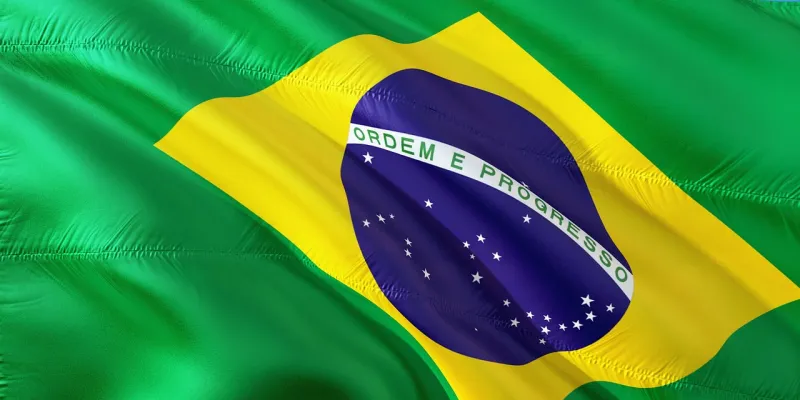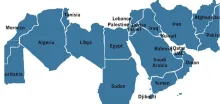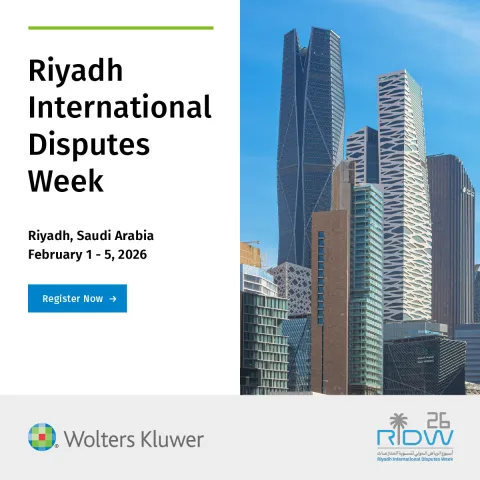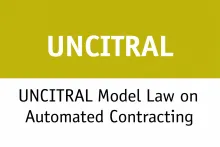XII CAM-CCBC Arbitration Congress: Second Day—Expert Legal Opinion, the Use of AI, and the Future of Arbitration
November 18, 2025
The XII CAM-CCBC Arbitration Congress was held on October 20 and 21, 2025, in São Paulo. Featuring two main panels and the closing keynote speech, the second day dealt with practical issues of the present and the future of arbitration, such as expert legal opinions, the use of AI in the taking of evidence, the criticisms currently faced by arbitration, and how they may shape its future development.
This report summarizes the most relevant discussions and key takeaways from the second day of the conference.
Expert Legal Opinion: When, Where, and Before Whom Should Parties Have One?
In the first panel (Panel 4), speakers Juan Eduardo Figueroa Valdés, Mohamed Abdel Wahab, Cristiano de Souza Zanetti, and Letícia Abdalla delved into the topic “Expert Legal Opinion in International Arbitration,” moderated by Ricardo Aprigliano.
The first question raised was: do we need an expert legal opinion? Pursuant to Mr. Figueroa Valdés, it is a strategic decision to be taken by counsel considering the circumstances of the case, such as the specificity of the legal issues involved and whether the arbitrators are familiar with the applicable law applicable. The approach to expert legal opinions also varies significantly depending on the legal tradition. Mr. Figueroa Valdés explained that, whilst, in civil law proceedings, foreign law is a legal matter and, as such, presumably known by the arbitral tribunal (iura novit curia), under common law it consists of an issue of fact that needs to be proven. However, this rule is not set in stone. Despite Brazil’s civil law tradition, expert legal opinions are often seen in domestic arbitrations to address specific legal issues, such as in contractual and post-M&A disputes, where the case revolves around the interpretation of a contractual provision under Brazilian law.
Regarding the evidentiary weight given to expert legal opinions, Mr. Abdel Wahab believes that the decisive factors are the content, the value of the opinion and how well-substantiated it is—rather than the persona of the expert. He also highlighted that, strategically, counsel should look for someone who is able to present a clear view of the law, both in writing and orally, and shows credibility. Mr. Abdel Wahab emphasized the importance of selecting a legal expert who can provide an accurate and precise understanding of the law, since the expert’s opinion may significantly influence the arbitrators’ interpretation of that specific law. This impact may even extend beyond the boundaries of the case in which the legal opinion is given, potentially shaping the arbitrators’ understanding of that specific law in other disputes as well—for better or worse (e.g., if the legal expert misrepresents the law). The key takeaway here is that counsel and parties should choose the legal expert wisely.
Among other topics, Mr. Zanetti touched upon the cross-examination of legal experts. In his view, it is a useful exercise as it unveils which opinion is substantiated and coherent with the report—and which one is not. It is, however, scarcely adopted in domestic arbitrations in Brazil. Picking up Mr. Figueroa Valdés’ presentation, Mr. Zanetti discussed how the content of the legal opinion differs considerably depending on whether it is presented in a domestic or international arbitration and on the legal backgrounds of the arbitrators. Despite the arbitration community’s efforts to create uniform rules for the taking of evidence in arbitration (for example the IBA Rules on the Taking of Evidence in International Arbitration), each country and legal tradition still has its particularities—e.g., how caselaw is structured and the weight given to it—which cannot be overlooked. From the perspective of counsel, the selection of legal experts should bear in mind the profile of the arbitrators and their legal traditions. The legal expert should also consider these factors to present a report that is best suited to assist the arbitrators in understanding the legal issues at stake.
Ms. Abdalla discussed potential conflicts of interest involving legal experts. She explained that both the UNCITRAL Code of Conduct for Arbitrators in International Investment Dispute Resolution (art. 11, 2, (a), (iii), and (d)) and new provisions of the 2024 IBA Guidelines on the Conflict of Interest in International Arbitration (items 3.1.6, 3.2.9, 3.3.2 and 3.3.6 of the Orange List) require disclosure of relationships between the arbitrator and any expert, as well as past appointments of the arbitrator to act as expert by the parties or law firms involved. Similarly, the CAM-CCBC Conflict of Interest and Availability Questionnaire, as revised in 2023, asks prospective arbitrators to disclose previous appointments as expert by the parties (item 7) and legal opinions rendered to the law firms (item 12).
What happens if the arbitrator discloses, at the outset of the arbitration, that it may render legal opinions to the parties or law firms provided that they are unrelated to the dispute? Would this suffice to comply with the duty of disclosure? It does not, according to a precedent of the São Paulo Court of Appeals mentioned in Ms. Abdalla’s presentation (Appeal No. 2061531-53.2023.8.26.0000). In that case, the Court granted a preliminary injunction to stay the effects of an arbitral award because, among other factors, the arbitrator failed to disclose three expert legal opinions rendered at the request of one of the parties’ law firms, acting on behalf of unrelated clients—out of which, two were given during the arbitration. Nevertheless, even if the arbitrator violated the duty of disclosure concerning legal opinions, the Court should conduct a case-by-case analysis to assess whether the non-disclosed fact is a ground for disqualification. Brazilian case law has not yet adopted a consistent position on this matter (e.g., as discussed here and here).
The Use of AI: The Good, The Bad, and The Ugly
The second panel (Panel 5), chaired by Cesar Pereira, dealt with “Taking of Evidence in the Era of AI” and featured presentations by Fernanda Barroso, Ucheora Onwuamaegbu, Thaís Chebatt, and Nikolaus Pitkowitz.
Starting off with the positive aspects of AI, Ms. Barroso discussed how closed AI (as opposed to open AI, explained here) is a powerful tool in the taking of evidence as it provides efficiency, precision and scale. For example, it can analyze a large set of documents and connect dots, such as tracing patterns of fraud and linking contracts with invoices and emails. Ms. Barroso emphasizes, however, that it must always be subject to human review and that the model must be explainable to the arbitrators.
Mr. Onwuamaegbu agrees that efficiency is the key feature that AI may bring to arbitration and notably to the arbitrators. For him, AI could already be introduced to perform the tasks currently performed by tribunal secretaries, for example. He goes as far as stating that the decision-making power could eventually be delegated to AI with appropriate safeguards, such as a clear definition of the scope of the decision be delegated, parties’ prior and express consent and the right to appeal from the AI decision to the arbitral tribunal. Even if it is probably unpopular among counsel and parties, this idea shows that there is a lot of room for creative solutions to profit from the benefits of AI in arbitration.
When it comes to the bad side of AI, Mr. Pitkowitz highlighted the risks of hallucinations and algorithmic bias. He believes that transparency of the methodology is the best response to this issue, allowing parties and arbitrators to validate and cross-check results.
Among other topics, Ms. Chebatt discussed the issues of confidentiality and data protection, especially in Open AI. She suggests that parties and arbitrators should design specific rules in the Terms of Reference or the Procedural Order No. 1 to keep data confidential in the context of the use of AI, including the possibility of sanctions if parties violate these rules. This suggestion sparks several discussions, such as how parties can prove that the violation of confidentiality was caused by AI and whether and how such sanctions should be applied by arbitrators (during the arbitration or only when deciding over the cost allocation in the final award, for example). There are no clear-cut answers to these questions, but it would certainly be useful for arbitrators and counsel to bear these issues in mind when discussing the procedural rules at the outset of the arbitration.
As to the ugly: how can parties and arbitrators avoid AI pitfalls? Mr. Pitkowitz takes the view that AI can and should be used in arbitration but not without guardrails. Guidelines such as the VIAC Note on the use of Artificial Intelligence, the CIARB AI Guideline and the AMCHAM Guidelines provide some recommendations for arbitrators, counsel and parties on how to deal with AI in arbitration, touching upon important issues of confidentiality and disclosure of the use of AI. Regarding the misuse of AI, Ms. Barroso explained that several existing tools can identify deep fake and manipulation of documents by looking at the meta data, using digital forensic tools and cross-checking suspicious files.
Even if we are still in an infant stage of familiarity with AI in arbitration, these debates will hopefully inspire the arbitration community to further evolve in finding solutions to profit from the good of AI, getting rid of the bad, and remedying the ugly.
A Glimpse of the Future of Arbitration
Lastly, Luca Radicati delivered the closing keynote speech, addressing the thought-provoking question, “How rosy is the future of arbitration?” Despite its successful historical development, arbitration is not immune to criticism and attacks, which may impact its future.
Mr. Radicati divided the criticism against arbitration into two categories: technical and external. Technical criticism encompasses issues relating to: (i) the proceedings, such as their length, inefficiency and high costs; (ii) the quality and diversity of arbitrators; and (iii) the lack of transparency. Although much has been done by the arbitration community to address this criticism, some issues still need to be tackled. For example, Mr. Radicati mentioned the attacks against arbitrators, guerrilla tactics and non-harmonized issues that cannot be settled by domestic law (e.g., res judicata).
External criticism is, in turn, described as the attacks against arbitration coming from external sources, such as politicians, academics, NGOs and the general public. As Mr. Radicati pointed out, there is a rise in parochial attitudes towards arbitration. Arbitration is sometimes portrayed as a threat to State sovereignty and to the rule of law, generating distrust against foreign arbitrators. This is the most significant threat against arbitration, since it was the favorable attitude from States—notably by signing the NY Convention on the Recognition and Enforcement of Foreign Arbitral Awards—and from Courts that allowed arbitration to develop and flourish.
Mr. Radicati is, nonetheless, optimistic about the future of arbitration—as we all should? Despite the challenges currently faced, the arbitration community has the ability to adapt, evolve and improve. Today’s scenario requires the community to engage effectively with and show its values to the outside world, but the outcome is promising. Times of crisis are fertile ground for evolution and growth—and there is no reason to believe that it would be any different with arbitration.
Conclusion
The practice of arbitration constantly presents new challenges or new nuances of old challenges, requiring the arbitration community to think outside the box to find solutions, whether in the selection of legal experts, the use of AI, or the response to criticism of arbitration. The delegates certainly left the second day of the XII CAM-CCBC Arbitration Congress with plenty to think about regarding these important current and future topics in arbitration.
Follow along and see all of Kluwer Arbitration Blog’s coverage of the Congress here.
You may also like











